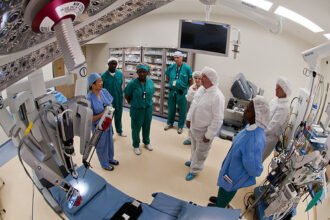Cancer affects more than 1.6 million people every year. Of those cases, the National Cancer Institute estimates nearly 600,000 people will die of the disease or from related complications. This number has dropped in recent years thanks to advances in cancer care that help improve survivability and quality of life for cancer patients. So how, exactly, has cancer care improved in recent years? Drug Approvals 10 years ago, there were just a handful of medications that were FDA-approved for the treatment of cancer. In spite of the lengthy trial process required to get a drug approved by the FDA, well over 100 new drugs have been approved and are being used today, all in the last 10 years. Much of this progress is due to the FDA itself, which has spent the last 10 years improving their review process to make it easier and faster to make it through the review process. This is to make sure these drugs can make it out of the lab and into the world, where they can do some good. More new drugs and techniques are making their way through the clinical trial phases every day. Oncologists who work on the frontlines in the war against this dreadful disease are using the information they learn from the patients they see every day to come up with new and unique ways to treat and cure cancer. Another tool that will help improve the approval and implementation of new cancer treatment drugs is the growing field of pharmacogenomics. Most drugs on the market right now are designed to be ?one size fits all.? Allergic reactions notwithstanding, most patients can be prescribed a particular drug and it will work in much the same way in all of them. A patient’s gene profile is used to see how drugs will affect them based on their genetic structure. By utilizing pharmacogenomics, a treatment plan can be customized for each patient based on the medications that will be most effective on that particular patient. Surgical Techniques We?ve moved far beyond the days of exploratory surgery. Advances in surgical techniques mean tumors are more operable than ever before, and many surgeries can be completed without the need for invasive techniques:
- Cryosurgery: This form of surgery utilizes liquid nitrogen or similar elements to freeze cancer cells and tumors.
- Laser surgery: The opposite of cryosurgery, this technique utilizes lasers to cut through and burn cancerous tissue. This is especially useful in very delicate areas, like cervical cancer and cancer of the larynx.
- Radiofrequency ablation: This surgical technique uses electrical impulses and heat to destroy targeted malignant tissue. It?s minimally invasive and is primarily used for inoperable cancers.
- Ultrasound: While still in clinical trials, high-intensity focused ultrasounds can be used to destroy cancer cells without surgery. The targeted sound waves destroy the malignant tissue.
This is just a small sample of the types of surgical advances that have made their way into the mainstream medical community in the last decade. Advances in robotic technology will likely make even these advances obsolete in the future, though, as we come up with more precise ways to manage cancer-related surgery. Robot-assisted surgeries are already being used to reduce pain, lower infection risk and reduce the length of hospital stays for cancer patients. Currently, these robots have to be controlled by a trained human surgeon, but as the technology advances, these surgeries could be completed entirely by robots. Multidiscipline Treatment Cancer treatment is usually limited to the oncology department, but cancer is a disease that often affects multiple systems in the body. This has sparked a trend toward multidisciplinary cancer care. Instead of seeing a single oncologist throughout their treatment, patients are treated by a team of professionals that include specialists in a variety of fields. One study published in 2011 found that, while there are some barriers that make it difficult to fully implement a multidisciplinary team, these teams generally improved patient outcomes. The team for a breast cancer diagnosis, for example, would include an oncologist, an OBGYN and a plastic surgeon for reconstruction, in addition to the radiologists, nurses, surgeons and other team members that handle the various aspects of cancer treatments. Many teams have also started including counselors, nutritionists and social workers to help patients take care of diagnosis and treatment. A cancer diagnosis is a tough pill to swallow for anyone, no matter how good the prognosis might be. As medical professionals, our job is to make the treatment as painless and effective as possible and to be there for our patients throughout the entire ordeal. These advances in cancer treatments are just the beginning. As medicine and technology continue to advance, so too will the way we treat this dreadful disease. Until we find a cure for cancer, these treatment advances are our best options.






